welcome
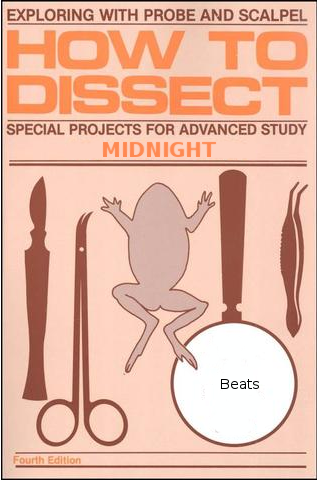 Late time I posted something like this was in my beat breakdown series. There I go through the in insides and out. This time around we are dissecting a collaborative project between me and a close friend of mine @vibrancy this brings a whole new level of find the production process when you collaborate with a close friend of yours especially at the point that you get decent at what you do.
Late time I posted something like this was in my beat breakdown series. There I go through the in insides and out. This time around we are dissecting a collaborative project between me and a close friend of mine @vibrancy this brings a whole new level of find the production process when you collaborate with a close friend of yours especially at the point that you get decent at what you do.
This allows you to know that every time you make something with them it's going to come out decent. This time we are focusing on a project called rain.
Rain:
bass
Well let's cover what @vibrancy left hanging for me to cover for you guys.thr other half of the post can be found on vibrancy's profile here. The bass line came to be as fill in the same major Bebop scale as the rest of the track to make the beat a little more full also adding a little bit more to the feel of the track. I can't tell exactly where it came from because vibrancy wrote this nice little bass loop.(a loop is a repeating loop of the same thing that transfers seamlessly back to the beginning).
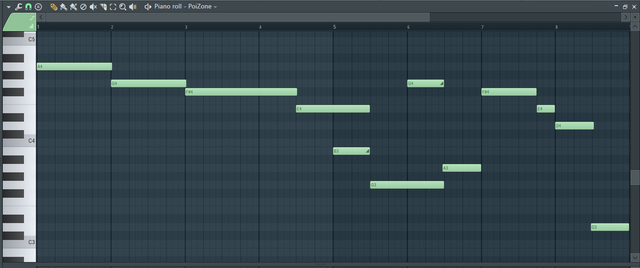 This is what it came out to look like. Not if you look at the short G note and B note the triangle at the beginning of the note this makes them slide notes giving that sliding transition between notes.
Drums
This was a really fun part of the project for me. I tried a new technique for sequencing drums. Instead of actually building the drums inside of a midi sequencer I chose to use a more Ableton Live type approach. And I'm a sequencer you would either use the piano roll or the sequencer buttons to put your drums together. Since we already used a hi-hat loop to start off the drums I decided I was going to use a technique vibrancy more often uses. This goes hand-in-hand with the subject the vibrancy touched on about learning from each other during collaborative projects this is what makes collaborating with someone your close friends with a great experience. Instead of the standard approach I chose to go ahead and just drag the audio file from the drums into the playlist. This gives you the ability to see where there's openings in the audio to play Something New it really shows where you can put something that sound okay and can if you know what you're looking at I personally don't know how to explain seeing an opening. Other than the fact that there's a gap in the audio wave that you can visually see so based off this technique I built the kick and snares off of the I had loop. This is the drums so you can see what I'm talking about.
This is what it came out to look like. Not if you look at the short G note and B note the triangle at the beginning of the note this makes them slide notes giving that sliding transition between notes.
Drums
This was a really fun part of the project for me. I tried a new technique for sequencing drums. Instead of actually building the drums inside of a midi sequencer I chose to use a more Ableton Live type approach. And I'm a sequencer you would either use the piano roll or the sequencer buttons to put your drums together. Since we already used a hi-hat loop to start off the drums I decided I was going to use a technique vibrancy more often uses. This goes hand-in-hand with the subject the vibrancy touched on about learning from each other during collaborative projects this is what makes collaborating with someone your close friends with a great experience. Instead of the standard approach I chose to go ahead and just drag the audio file from the drums into the playlist. This gives you the ability to see where there's openings in the audio to play Something New it really shows where you can put something that sound okay and can if you know what you're looking at I personally don't know how to explain seeing an opening. Other than the fact that there's a gap in the audio wave that you can visually see so based off this technique I built the kick and snares off of the I had loop. This is the drums so you can see what I'm talking about.
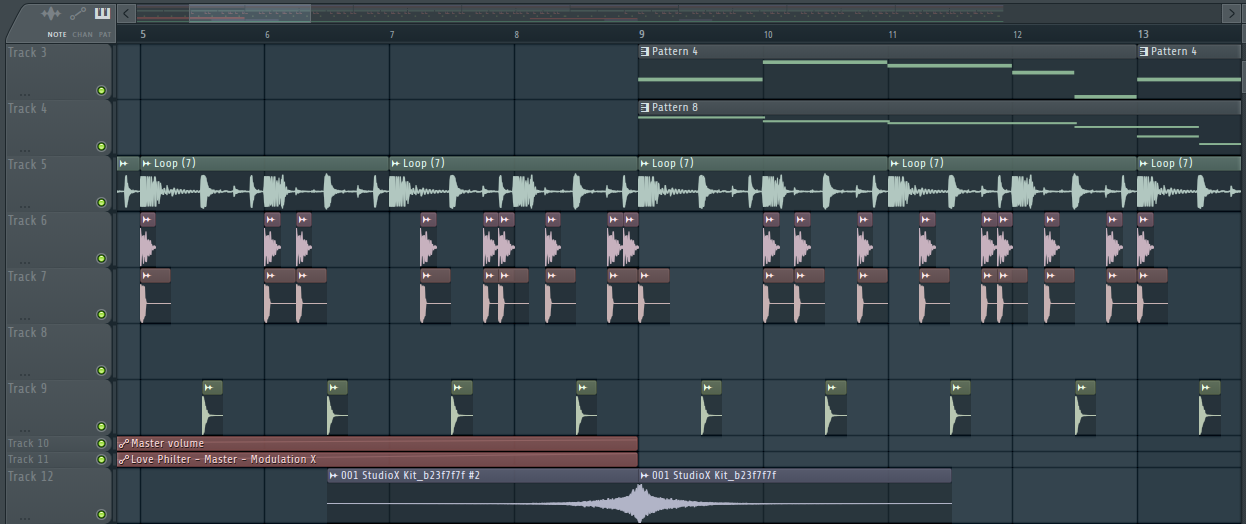
So if you look to try and better explain the simple example is you can see that the kick and snare don't cross. Morning complexity in this example is that some kicks fall on the hats but many also don't. Which gets kinda complicated and shows the idea of music correlating to math. But let's not make this to confusing. This isn't an in depth music theory lesson (not today at least).
FLUTE
The flute was put in and made not of an Ambient noise/Melody in the track to drive the mood of the track. This was originally a flute that just played well normal flute sounds this became an Ambient Melody once vibrancy decided to add reverb to it and I mean a lot of reverb.
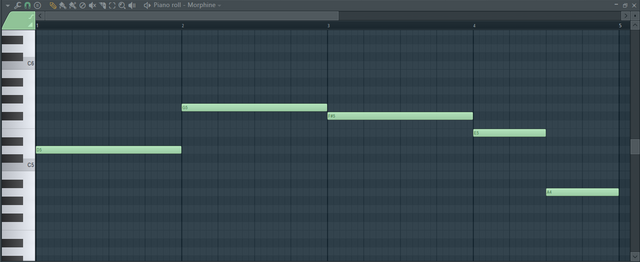
The flute really was a nice addition to the counter Melody parts in my opinion.
THE MIX
Last but not least we have the mix. The mix/mixing process is the process of setting the sounds a the appropriate volumes so that they always fall over each other in a specific order that sounds best. Example drums over Melody bass just behind the Melody things like that.
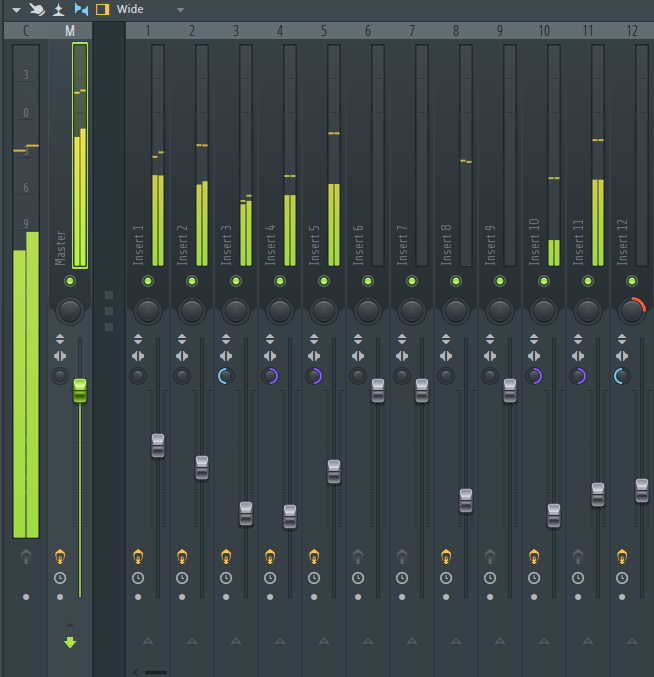
your probably wondering what are those purple blue and yellow knobs? Well I'm here to answer. The blue and purple knob/knobs are actually the same knob with 2 functions it decides whether or not the audio is in Stereo or mono. And controls exactly how far either way you take this options. The yellow knob is pan. What's pan? Pan it the process of making the audio primarily play from the left right or center/both speakers.in some cases this makes more room for vocals or instrements.These are the 4 primary function of mixing. And why exactly there used and done.
I hope you guys enjoyed.
And if you haven't already check out the other half other of this project over a @vibrancy page.
Have a good day steemians!
